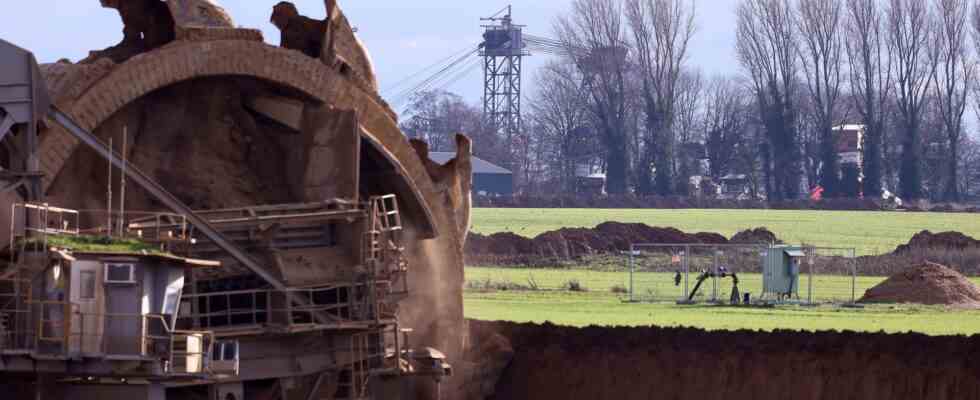comment
Status: 01/11/2023 10:33 a.m
Lützerath is a symbol – and has as little to do with saving the world as Elon Musk says with defending freedom of expression Jochen Trum. Rather, the climate movement is erecting its altar here.
Lützerath is less a place, Lützerath is an event. Like Woodstock. Or Waterloo. In the politics of North Rhine-Westphalia it is already a dictum and it will probably go down in the history of the state. As the last, decisive battle for lignite. Lützerath is a symbol that could hardly be more charged and political. And hard to beat in terms of ambivalence.
The climate movement erects its altar here. She condenses the occupation and the resistance into a question of destiny for the world. The objective reality of the depopulated hamlet, which consists of only a few junk properties, and the cause that the protesters are concerned with have long been decoupled.
Lützerath has as little to do with saving the world as Elon Musk has with defending freedom of expression. And most of them actually know that, but given their irritation and despair about politics, they don’t care. The World as Will and Representation.
Coal has to end
How this came about is an interesting story. Sure, at some point you just have to stop burning coal. No matter where it is, no matter who burns it. And yes, better today than tomorrow. That actually applies worldwide, but it worked very well for the German activists in the Hambach Forest a few years ago, even if the legal and political situation there was different than it is now.
That’s why Lützerath doesn’t fit either. Because the term could just as well be the symbol for a great success of the climate protection movement. Anyone who takes their eyes off the individual event and looks at the history of coal in North Rhine-Westphalia understands this.
Expensive feats of strength
Mining coal, converting it into electricity and coking it for the steel works was a raison d’être on the Rhine and Ruhr for a long time. Coal and steel were guarantors for the country’s resurgence, industrial heritage and the core of the country’s identity. That is why it is politically remarkable how several government coalitions in Düsseldorf – red-green, black-yellow and now black-green – are gradually closing this chapter in the state’s history. With the participation of various federal governments, RWE and the trade union.
These were expensive feats of strength, a tough struggle and it certainly did not just happen of its own accord, but under the impression of growing resistance and the realization that coal cannot have a future.
The Greens sell their successes badly
Yes, everything could have gone faster. First the exit from hard coal mining, then the reduction of the lignite opencast mine, the exit in 2038 and now the early end of 2030. In addition, the preservation of the Hambach Forest and several villages that were actually supposed to give way to Garzweiler II.
The Greens, their Economics Ministers Robert Habeck in the federal government and Mona Neubaur in NRW, have a share in this. They’re just amazingly bad at selling their successes. They didn’t understand how to make Lützerath their event. With the end of Lützerath, an important chapter in industrial history closes: millions of tons of coal remain in the ground. That could also be the message.
Activism as a business model
The fact that the Greens do not get through with this is also due to the fact that they have the harshest critics in their own ranks. Some Greens, not without a fair measure of self-righteousness, have turned activism into a business model. They think they are morally superior anyway.
But the law applies – and that no one decides for themselves whether they are on the right side of history. Ultimately linking the 1.5 degree target with Lützerath could also prove to be too short-sighted. When the place disappears, what does the movement post afterwards?
Lützerath is already an event. What is no longer needed are martyrs.
Editorial note
Comments always reflect the opinion of the respective author and not that of the editors.

